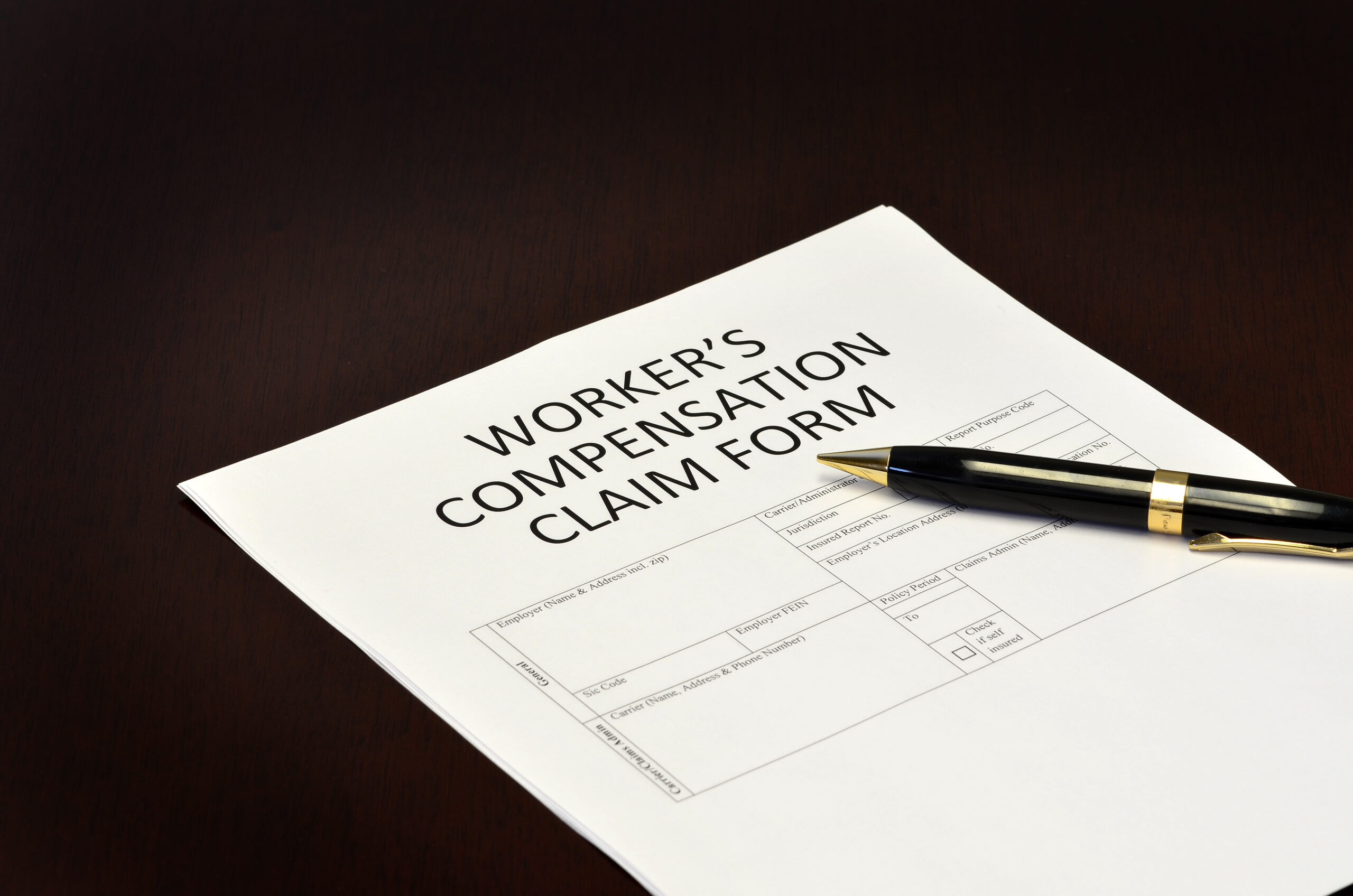
When you've suffered a work-related injury or illness, navigating the complexities of filing a workers' compensation claim can be overwhelming. The good news is you have certain protections under Minnesota law. All employers must purchase workers' compensation insurance or self-insurance against worker injuries, and you can file a workers' compensation claim if you have suffered an injury or a work-related illness. If your claim is successful, you will receive a portion of your lost income and reasonable medical expenses to treat your injury.
Workers' compensation claims are not just between you and your employer (although your employer does not necessarily want you to file a successful claim, because their insurance premiums will increase). Your employer has likely purchased a policy from a for-profit insurance company. You will file the claim with the insurance company, which will decide your claim. The same insurance company that has power over you is the one that will be responsible for paying your claim. Unfortunately, the insurance company's profit motive often comes into play, leading to a denial of your claim, or a decision to force you back to work before you fully heal.
If the insurance company has denied your workers' compensation claim, you have legal options under Minnesota law. You can file an appeal, allowing you due process and the right to tell your story. If you did not hire an attorney to help you prepare your claim, you will benefit from getting legal help before you file an appeal. By hiring a workers' compensation lawyer in Minnetonka, you can have peace of mind knowing that you have an experienced legal professional on your side who will work to fight for your rights.
Reasons Why Insurance Companies Deny Workers’ Compensation Claims
Insurance companies may deny workers' compensation claims for the following reasons:
- The injury was not related to your job.
- You were suffering from a pre-existing condition and not a work-related injury.
- You committed intentional misconduct or were intoxicated at the time of the accident.
- You suffered an injury on the way to or from work and not on the job.
- You did not actually suffer an injury.
- You did not notify your employer of your injury within the required timeframe (under Minnesota law, you have 180 days from the time of your injury).
- You did not follow the requirements of filing a claim.
You Can Act to Appeal a Workers' Compensation Claim
Denial
You must take prompt legal action if you believe the insurance company wrongfully denied your workers' compensation claim. Not only do you have a statutory deadline to file an appeal, but you also need to act quickly because this is money you need to pay your medical bills and provide for you until you can work again.
In Minnesota, you have minimal time to begin the appeals process when you get a denial letter from the insurance company. The insurance company will need to send you a letter explaining its decision, and once you receive that letter, you must get ready to act.
Your first step will be to contact an experienced Minnesota workers' compensation attorney. A skilled attorney can help level the playing field and ensure that you receive the full benefits you deserve. Your lawyer will review the insurance company's decision and your claim records to let you know if there is an opportunity to appeal their decision. They will explain your legal options and the path forward that you may have.
You Can Fight Back Against the Insurance Company
Insurance companies do not get the last word if they have denied your workers' compensation claim. Their denial is just the start of a legal process that can result in you getting all the benefits you deserve. Insurance companies may have to pay you what they owe you, or you can reach a settlement agreement. While a workers' compensation appeal adds time and uncertainty to the process, it can eventually get you the money you need.
A Lawyer Can Help You File an Appeal

You do not have much hope of winning your appeal without the help of a workers' compensation lawyer. Insurance companies know that they have a fight on their hands when they see that you have retained a workers' compensation attorney. They may even surrender or be more willing to discuss a settlement with you. Even if the insurance company tries to fight you until the last step in the legal process, you can win your appeal when you get a hearing in front of an objective judge who does not have a financial interest in your case.
Many Workers Manage to Beat the Insurance Company
Statistics show you can win the case when the insurance company has denied your workers' compensation claim. One study shows that 67 percent of denied claims convert to benefits, and in some cases, you may receive more benefits than you otherwise may have gotten. You may wonder why insurance companies make you fight when it may cost them even more money in the end. They may be counting on the fact that you will go away without a battle, but when you hire an experienced workers' compensation attorney, that is not an option.
Minnesota provides you with an extensive appeals process to take the case out of the insurance company's hands. Insurance companies will become a party to the litigation, trying to justify and defend why they have denied your claim.
Your Lawyer Can Resolve Some Disputes Directly with the Insurance Company
Once the insurance company has denied your claim, your workers' compensation attorney may try to speak with it first. The denial may have been a misunderstanding or a simple piece of information missing from your claim. A conversation between your lawyer and the insurance company can quickly clear up the issue, which is your best-case scenario.
You Can Shore Up Your Claim Before Filing an Appeal
Before you file your appeal, your workers' compensation lawyer will work with you to shore up your claim and help you address the reasons for its denial. You may need additional paperwork that can support your entitlement to benefits. Or, your case may require more testimonies and statements that can show your injury happened on the job, or that you did not commit misconduct yourself. Remember that workers' compensation is generally a no-fault system, and your negligence does not prevent you from receiving the necessary benefits. Your workers' compensation attorney's job is to present the strongest possible case when you need to fight the insurance company.
You Will Begin with an Administrative Appeal
If the insurance company has dug in and intends to fight you, Minnesota provides for a robust appeals process, and you may choose to begin with alternative dispute resolution. Minnesota has a unit in the Department of Labor and Industry that attempts to resolve disputes with workers' compensation insurance companies before they reach the stage of litigation. It may be helpful to try to resolve your case quicker without going through a more formal litigation process.
You will file your appeal with the Department of Labor & Industry, and you may also file an appeal with the Office of Administrative Hearings. Either process allows you to have your day in court. Workers' compensation proceedings are administrative and not necessarily as formal as litigation in court. Often, the judge may set some of the requirements for the process based on their discretion.
What a Workers' Compensation Appeal Entails
There may be a discovery process as part of your appeal. Here, you may have your deposition taken, and your lawyer may also obtain evidence from the insurance company. Your treating doctor will also have a role in explaining the nature of your condition.
Insurance companies may also send you for an independent medical examination from a doctor they are paying. Unfortunately, this examination can be a minefield because the doctor is often on the insurance company's side and may look for ways to strengthen the case in court.
A Judge Can Hear Your Case and Decide
At some point, if your case does not settle, your workers' compensation appeal will mean a hearing in front of an administrative law judge. These hearings are relatively formal. You may have to testify as a witness on your own behalf and be subject to cross-examination by the insurance company's attorney. Your lawyer may call additional witnesses in support of your claim.
The administrative law judge will decide on your appeal after the hearing. If the judge sides with you, it generally means you have the right to benefits unless the insurance company decides to take the case further.
You Can Continue Your Appeal if You Do Not Win at First

Multiple additional appeal levels are still available if you do not win your appeal initially. The next step is to challenge the decision to the Minnesota Workers' Compensation Court of Appeals. This panel consists of three to five judges who will review the initial decision. These judges are not necessarily allowing you to begin your case again from scratch. Still, they may analyze the initial decision made by the administrative law judge to see if they made an error. This panel of judges must issue their decision within 90 days after they have received the case.
Hopefully, the earlier levels of appeal are enough for you to overturn the denial; if not, you still have legal options available. A workers' compensation attorney can then take your case from the administrative law system and into state court. You can file an appeal directly to the Minnesota Supreme Court, although they do not take up every case.
You may also need to appeal other adverse decisions in the workers' compensation claims process. For example, the insurance company may tell you that you need to return to work in some capacity before you fully heal. If you do not follow the instructions, you can risk losing your benefits entirely, so you may need to appeal if you have lost them. The insurance company may refuse to pay for medical care you need to treat your injuries, and you may need to fight for the coverage you are due. An experienced workers' compensation lawyer can work with you to deal with the insurance company on your behalf and file an appeal if necessary because you have legal rights.
A Workers' Compensation Attorney Charges You Nothing Upfront
Appealing a workers' compensation claim denial can be lengthy without guaranteeing success. You have a better chance of winning your case when you hire a workers' compensation lawyer to represent you throughout the appeals process. Insurance companies may want to avoid fighting because it can cost them considerable attorney's fees if your case goes the distance.
In the meantime, you will not be paying your workers' compensation attorney upfront or by the hour. A workers' compensation lawyer works for you on a contingency basis, meaning they only get paid if you receive benefits. Your workers' compensation lawyer takes on the risk that you may not receive anything when they accept your case. If your appeal is unsuccessful, your attorney does not send you a bill for their time and services. If you do receive benefits, your attorney gets paid from the proceeds of your case. It makes sense to pay an attorney a percentage of what you receive instead of assuming you will get nothing by representing yourself.
Not worrying about upfront costs can provide a tremendous sense of relief for injured workers. It means you can focus on recovering from your injuries and seeking the medical treatment you need without the added stress of financial burdens. Instead of navigating the worker's compensation system alone, a lawyer can guide you through the process, ensuring you receive the benefits you deserve.
Having a personal injury lawyer in Minnetonka by your side throughout the worker's compensation claims process gives you the best chance of achieving a successful outcome. They have the experience to tackle any legal challenges that may arise, allowing you to focus on your recovery while they fight for your rights. Do not risk jeopardizing your claim; consult a worker's compensation attorney today.

